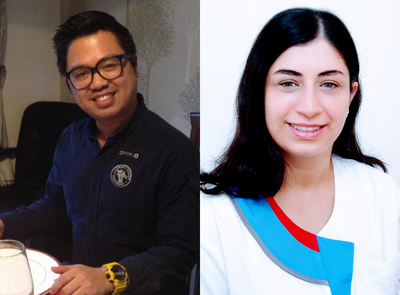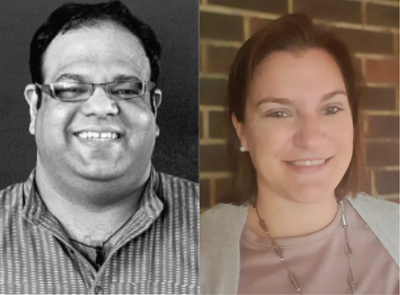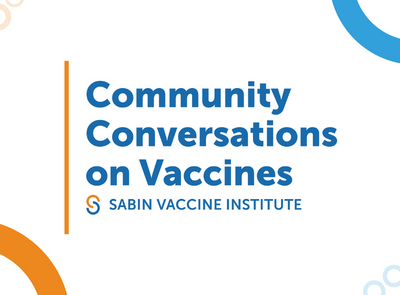Advocating for the Health Workforce, Systems Investments to Boost and Sustain Immunization with Daren (Paul) Katigbak and Rita Akiki
Daren (Paul) Katigbak and Rita Akiki discuss vaccination efforts, health worker welfare, and universal health coverage.
Sabin Vaccine Institute’s Community Conversations on Vaccines, presented by Immunization Advocates, explores issues related to vaccines and immunization in low and middle-income countries through discussions with close-to-community professionals, including health workers, journalists, and researchers.
Co-hosts Vince Blaser and Francesca Montalto are joined by Daren (Paul) Katigbak, a Women Deliver young leader, nurse, and public health professional in the Philippines, and Rita Akiki, a registered nurse and nursing director at Aboujaoude Hospital in Lebanon. They discuss their views on the status of vaccination efforts in their home countries of Lebanon and the Philippines. its implications, and approaches toward improvement, including addressing the welfare of nurses and other health workers who play important roles in educating the public on vaccines. Paul and Rita consider the investment needed in the health workforce, health systems, and universal health coverage (UHC) to improve and sustain immunization rates as the United Nations prepares to host a high-level meeting on progress toward UHC in 2023. Paul also details his HIV/AIDS advocacy and the significance of immunization in high-risk communities.
To learn more about Paul and Rita’s recommendations on the policies and investments in the health workforce and systems needed to boost and sustain vaccine access, acceptance, and demand, check out the key takeaways of this episode or the transcript.
Key Highlights:
- 03:24 – 06:09 – Poverty among Nurses Hinders Immunization Uptake in Lebanon – Many nurses and health workers in Lebanon struggle to support themselves, facing mental health challenges and reduced salaries. When health workers’ efforts are not adequately valued, they are less likely to reach their maximum impact.
- 12:45 – 16:10 – Policymaker’s Role in Improving Vaccine Access and Demand Worldwide – Policymakers should invest heavily in infrastructure and health workers’ welfare. to increase vaccine access for communities. When taken care of, health workers can give their best to help the community and promote immunization.
- 21:59 – 25:40 – Benefits of the Cross-Training Program – There is a shortage of nurses to attend to patients, affecting vaccination rates. The cross-training program led by Rita has been helping to train young people who have a passion for health care on the basics and then integrating them afterward into the system to augment this health worker shortage and educate people on the importance of vaccines.
- 29:55 – 31:20 – Increase in the Salary of Nurses and Health Workers – Health workers and nurses are not paid enough, yet they are the most important and trusted people during outbreaks pandemic. Decent pay will go a long way to improving their resolve to be diligent in carrying out their duties.
Connect with Our Guests
Learn more about Rita Akiki’s work:
- Person-Centred, Therapeutic Education for Patients with Heart Failure: Lebanon (ICN Voice to Lead, September 2020)
- The Role of a Cardiac Nurse in the COVID-19 Pandemic (The World Heart Foundation, May 14, 2020)
Connect with Daren (Paul) Katigbak on Twitter @darenpaulCHN. Learn more about Paul’s work:
Frontline Health Workers Coalition @ UNGA Roundtable 2: Listen & Support | Global Action & Alignment for Health Workers
Meet Our Guests












